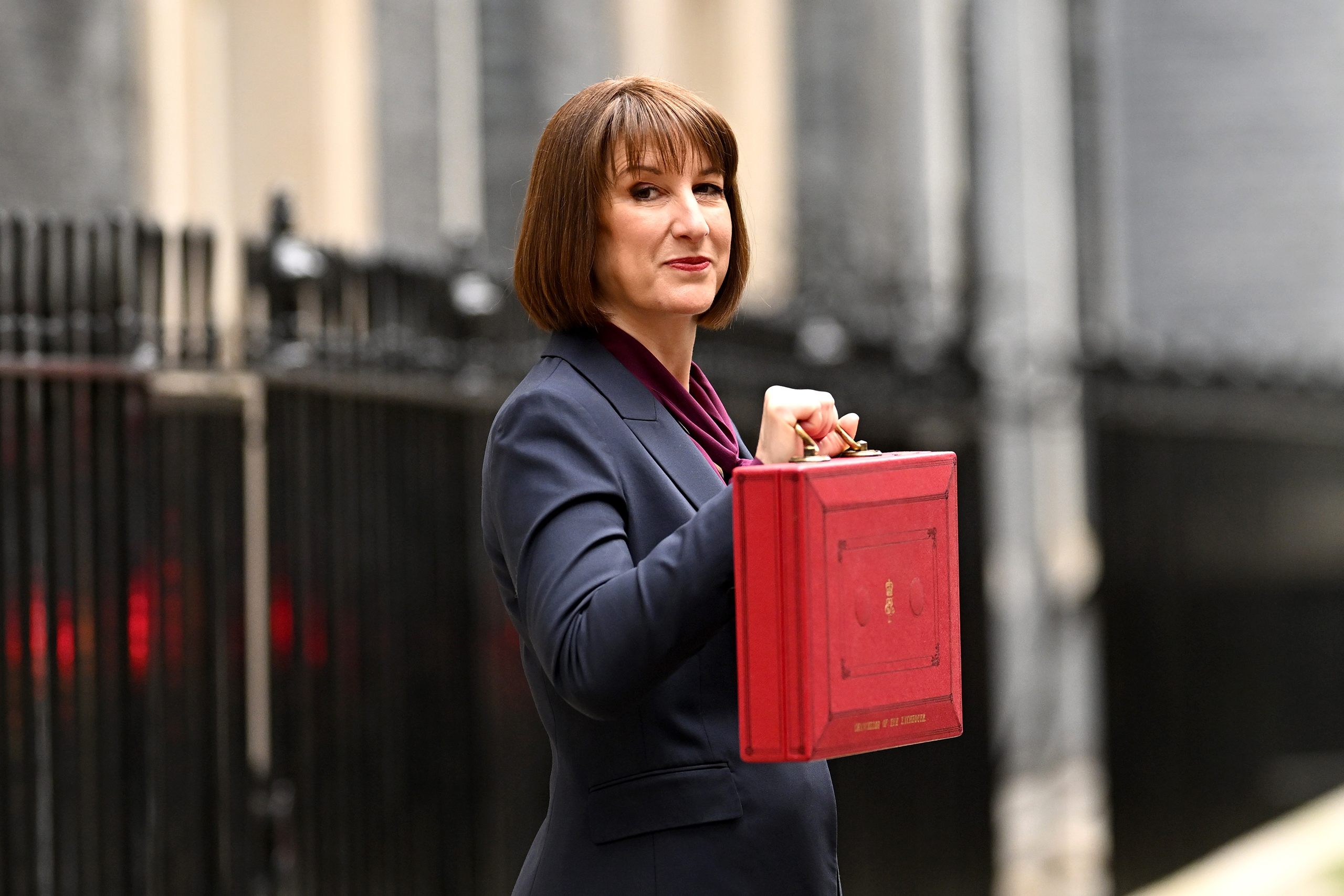So, 2p or not 2p? That is the question. The government is in a Hamlet-like state of psychological turmoil about whether Rachel Reeves should put up the basic rate of income tax. One minister describes it as “the big strategic call of this parliament”. It is definitely the hairiest decision to be made about the budget – and one that can only be made with the agreement of Sir Keir Starmer. Some Labour people tremble that breaking the party’s signature pledge not to touch income tax will be the terminal move that destroys what remains of the credibility of both the chancellor and the prime minister. Others in the ministerial ranks make the counterintuitive case that “tearing off the sticking plaster”, as one put it to me, offers the only hope of escape from the agonising briar patch in which the government squirms. While I’m authoritatively told that no final decision has been taken, it is certainly the topic of lively discussion.
The chancellor is stuck between a fiscal rock, made more jagged by the Office for Budget Responsibility downgrading its growth projections, and a political hard place, made flintier by absolutely dire poll ratings. You can, and ministers do, point the finger at the baleful legacies of Brexit, Covid and Tory economic mismanagement. You can say, as they also do, that Russian aggression and Trumpian tariffs have made things worse. But blame-gaming doesn’t solve the dilemma. Having promised not to come back for more taxes after raising £40bn from them in her last budget, the chancellor needs to find serious amounts of extra money. Gold pots at the end of rainbows exist only in fairy tales.
Speaking of which, a chunk of Labour MPs, and a proportion of the cabinet, would prefer to ease the fiscal rules to permit even more borrowing. They are broadly in agreement with the ineffable words of Andy Burnham: “We’ve got to get beyond this thing of being in hock to the bond market.” Lovely thought, were it not for the fact that Britain is very much in hock to the bond market to the tune of approaching £3tn. The chancellor is right that there is nothing intrinsically progressive about handing over vast amounts of taxpayers’ money in interest payments to the holders of our national debt. She is also right to be wary that meddling with the borrowing rules could provoke a posse of bond vigilantes to descend from the hills to lynch this government.
I expect she will issue renewed exhortations to her colleagues running departments to find more “efficiency savings”, but bearing down on spending is always easier to advocate than it is to implement, especially for a Labour government that swore there would be no return to austerity. Pat McFadden tells colleagues that he wants to have another go at welfare reform. He’s not wrong to try, but the work and pensions secretary may find the parliamentary terrain even more hostile than it was back in the summer, when the government caved after more than 120 Labour MPs rose up in revolt. A minister points out that “the number of welfare rebels has since gone up by a dozen because of all the sackings in the reshuffle”.
The chancellor is stuck between a fiscal rock and a political hard place, made flintier by absolutely dire poll ratings
The chancellor is stuck between a fiscal rock and a political hard place, made flintier by absolutely dire poll ratings
So the chancellor, who thought it was one and done when she hiked taxes in her first budget, is going to have to impose further increases. She also hears advice that a budget which merely squeezes and scrabbles to get her books back in balance will be all pain for no gain. If this is not to be an unremittingly grim event, she’ll want to announce at least a few items that Labour people will applaud and some voters might find attractive. Added to that is the pressure to rebuild the Treasury’s fiscal breathing space as insurance against future shocks. On the principle that you might as well be hung for a sheep as a lamb, some of the chancellor’s colleagues are urging her to go big.
“It’s not worth doing just a penny on income tax,” argues one minister at the heart of government. “The worst thing she can do is not enough and have to come back and raise even more taxes next year.” This, in a nutshell, is the case for making it 2p on the basic rate. According to the Treasury’s ready reckoner, that brings in nearly £14bn of additional revenue in the next financial year and more in subsequent ones. This would deal with a substantial chunk of the black hole.
Raising the basic rate of income tax would be dramatic. Denis Healey was the last chancellor to do it and that was more than 50 years ago. The attractions are that it wouldn’t be inflationary (unlike a rise in VAT) and it would be simple to implement. There’d be less need to scour around for multiple increases to narrowly-based taxes on specific industries or groups who will be noisily aggrieved. It might be seen as fairer and less likely to damage wealth creation than alternative revenue-raisers. The Resolution Foundation, whose alumni are well-represented in this government, suggests offsetting an income tax rise with a cut to National Insurance. That would help to protect people’s wage slips, but pensioners, landlords and possibly the self-employed would all take a hit.
The case against hiking income tax can be made just as starkly. This would be a blatant breach of Labour’s supposedly cast-iron election pledge not to raise the three big universal taxes. You can argue that this was a daft and self-denying promise that should never have been made in the first place – but that’s besides the point politically. The pledge was made, the election was fought on it, and breaking it is likely to unleash a thunderclap of protest. Reform will cry betrayal. The Greens and the Labour left will contend that she should have gone for a wealth tax. The Conservatives will cite Margaret Thatcher’s saying that Labour governments keep jacking up taxes until they “run out of other people’s money”.
Related articles:
Were I an economic advisor to Rachel Reeves, I’d probably tell the chancellor that raising income tax is the least worst way of gathering meaningful funds in a hurry. Were I a political strategist, I’d probably counsel that this move is freighted with a high risk of reputational suicide. She’s hearing both arguments, and I’m told she hasn’t yet made up her mind which way to leap. That’s not a surprise. Budget decisions do not come much bigger than this.
Photograph by Leon Neal/Getty Images
Newsletters
Choose the newsletters you want to receive
View more
For information about how The Observer protects your data, read our Privacy Policy



